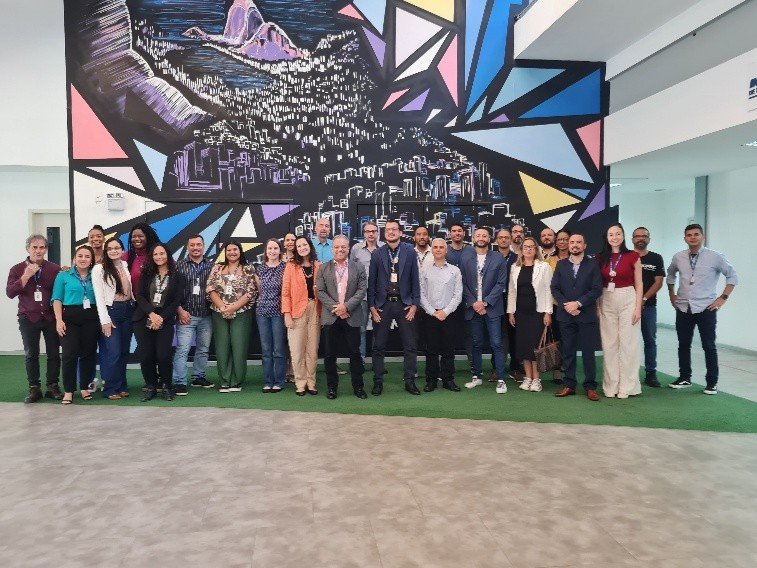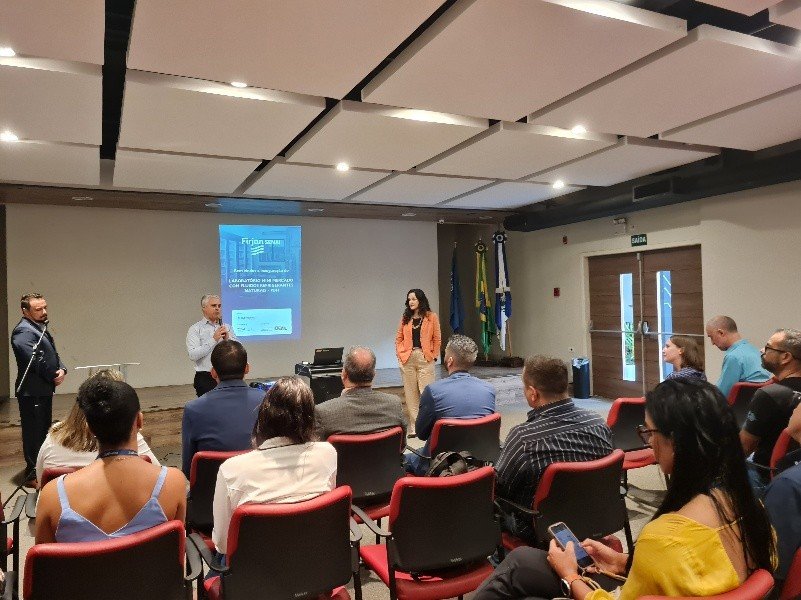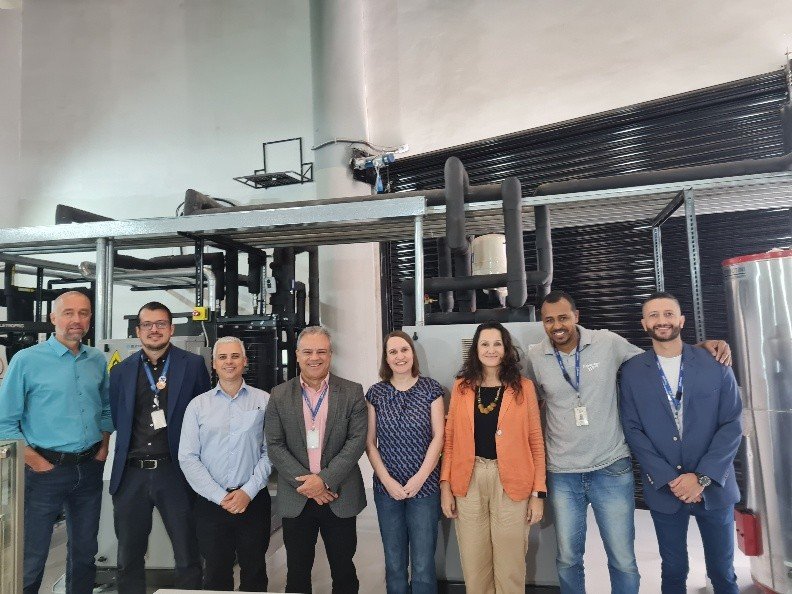A new training laboratory for natural refrigerants CO₂ and R-290 has been inaugurated at the Firjan-SENAI Benfica school in Rio de Janeiro, Brazil. The facility will offer a free course on the “Safe and Efficient Use of CO₂ and R-290 in Commercial Refrigeration Systems”, as part of the Brazilian HCFC Phase-out Management Plan (PBH).
The high-tech training center features a cascade refrigeration system and was made possible through equipment and technology donations under the PBH. The program supports the transition away from HCFCs and high-GWP HFCs toward climate-friendly refrigerants, such as CO₂ and propane (R-290).
Coordinated by Brazil’s Ministry of Environment and Climate Change (MMA), the PBH is implemented in partnership with the German Agency for International Cooperation (GIZ) under the Proklima program. The new laboratory in Rio is targeted at the service sector and complements the first facility opened in Curitiba in June.
During the inauguration ceremony on August 19, Anderson Carolo de Souza, regional executive manager at Firjan-SENAI-SESI, stated that 150 technicians are expected to complete the course by the end of the year. He emphasized the ongoing nature of the initiative and its long-term potential.
Frank Amorim, environmental analyst at MMA, explained that the training aims to facilitate the transition of supermarkets and similar businesses to low-GWP refrigerants through professional capacity building. “This lab delivers the best technological solution with natural refrigerants, aligned with global trends. Hundreds of professionals in the food retail sector will receive free, safe training,” he said.
Tatiana Oliveira, also from MMA, highlighted that the PBH is part of Brazil’s commitments under the Montreal Protocol. GIZ project manager Stefanie von Heinemann noted the extensive efforts behind the initiative, including public tenders and collaboration with national manufacturer ELETROFRIO. She added that the SENAI teaching staff are currently undergoing Train-the-Trainer sessions.
Rogério Marson Rodrigues, engineering manager at ELETROFRIO, underscored the global-level technology applied in the lab, including advanced automation systems.
The school in Rio is the second PBH lab of its kind. Two additional laboratories are planned for other regions of Brazil in the coming years.


